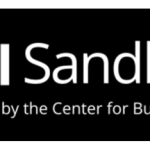The National Science Foundation has awarded Haluk Demirkan, Ph.D. (Co-Principle Investigator) and the Center for Business Analytics an $85,000 grant to support a workshop on evidence-based industry perspectives on STEM education for the future.
The Principle Investigator on the grant is Yasaman Moghaddam (International Society of Service Innovation Professionals) and the partner organizations in the grant include Stanford University, UW Tacoma and San Jose State University Foundation.
This project aims to serve the national interest by further informing higher education leaders about industry perspectives on skills needs for STEM jobs of the future.
In many industries, the most in-demand occupations, specialties and skills did not exist ten or even five years ago, and the pace of change is set to accelerate even more rapidly going forward. This will have a tremendous impact on how the workforce of the future acquires and applies new skills.
The research questions to be addressed in this project include:
1) How has industry perspective on skills demand changed as a result of the COVID-19 crisis?
2) How are industry recruiters and hiring managers screening STEM graduates for both “specialized” and “foundational skills”?
3) From an industry perspective, which colleges/universities & curricula/pedagogies best align with industry demand?
4) Can a set of desirable curriculum/pedagogy attributes be developed from the findings?
5) How are industry recruiters using badging and certification to assess job-readiness for college graduates?
To answer these research questions, the team will conduct four 3-hour, virtual workshops organized by the International Society of Service Innovation Professionals, ISSIP, to take place in the 2nd half of 2021.
The specific topics addressed in the upcoming four workshops are:
Workshop 1 – Industry hiring process – How are industry recruiters and hiring managers screening STEM graduates for technical skills/foundational skills? And how does that map to the undergraduate curricula and/or pedagogies of the universities with which they have had the most and least success hiring new graduates?
Workshop 2 – Industry perspective on badging and evolution of credentialing – Opportunities and challenges.
Workshop 3 – Industry perspectives on university curriculums & pedagogies that are best aligned with the needs of industry – attributes of curricula & pedagogies.
Workshop 4 – Industry perspective on the impact of COVID-19 upon the future of work and learning.
By presenting an evidence-based industry perspective, this project aims to further explore how to close the gap between undergraduate education and employment that would lead to a thriving workforce in our nation for the future.






